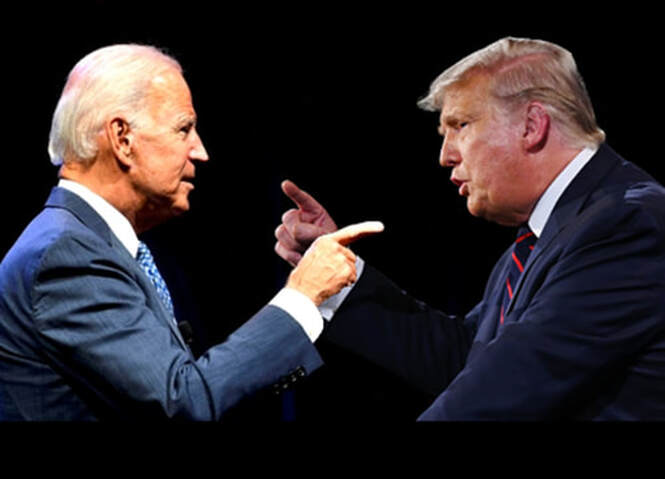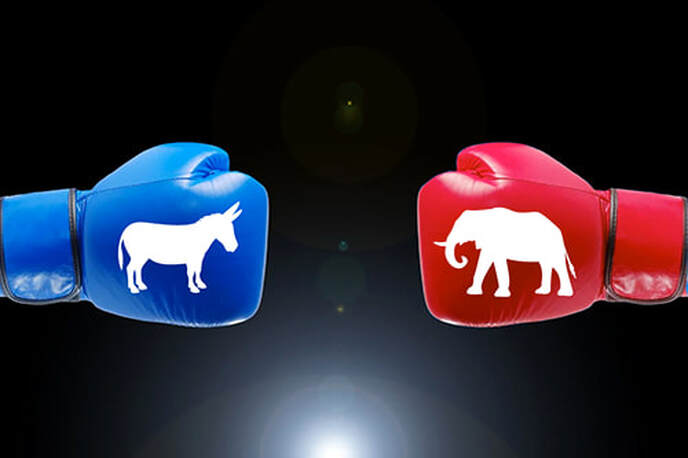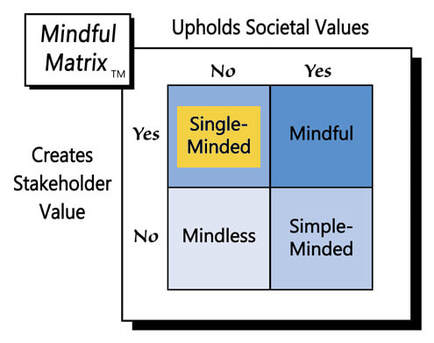author of Honorable Influence - founder of Mindful Marketing
- The PAC America First Action sent a direct mail piece to our home featuring a photo of Joe Biden on an old-west wanted poster with the text, “WANTED for attempting to kill 600,000 Pennsylvania jobs!” The other side of the piece blames Biden for wrecking families’ finances and cozying up to China.
- The Lincoln Project PAC has discredited Donald Trump through a one-minute video, “Mourning in America.” Against a backdrop of barren cities and towns, narration explains, “Today, more than 60,000 Americans have died from the deadly virus Donald Trump ignored,” and “Under the leadership of Donald Trump, our country is weaker, and sicker, and poorer.”
Neither of these ads even mention the candidate they endorse; rather, their aim is to undermine the adversary—a strategy that contradicts the research of Sorin Patilinet, global consumer marketing insights director for Mars, Inc. In analyzing over 700 ads, Patilinet’s team found that negative emotions often backfire on the firms that employ them.
Given the tenuous nature of negative ads and their infrequent use by businesses, why do political campaigns regularly resort to antagonism? It must be that negative ads work for politicians; if they didn’t, PACs and others wouldn’t spend millions of dollars making them.
But, what makes negative advertising effective for those seeking a senate seat or the presidency but not for businesses building their brands?
Not every type of advertising fits every industry. For instance, humor is hard for financial planners and funeral homes to pull off since their customers expect seriousness. Politics is a very unusual ‘industry’ for advertising, as the following seven distinctions summarize:
- Fear appeal: Playing on people’s fears isn’t a viable way to promote most products, but it does work well for some, like home security systems, and political candidates. In fact, some ads, like the two described above, effectively use fear to position political opponents as threats to citizens’ ‘home’ towns, states, and countries.
- Lower consumer expectations: Gallup’s annual survey about the ethics of 20 different occupations supports that people hold politicians, and likely their ads, to a lower standard: Members of Congress consistently bring up the bottom of Gallup’s list, suggesting little esteem for them and other elected officials.
- Familiar fighting: If there are too many “serious” Super Bowl commercials, people complain, mainly because they’re used to seeing funny ones. Whether we like them or not, we often expect political ads to be negative.
- Rationalized outcomes: Political ads also get a pass because of the importance of governance. As a result, we place political advertising in a different category, accepting its enmity because ‘the ends justify the means.’
- The lesser of two evils: Unlike the overwhelming number of good product options consumers usually enjoy, elections often entail a choice between just two candidates who many find equally unappealing. As a result, one ends up on top as the ‘candidate of least compromise.’
- Negativity bias: I recently conducted a study of advertising humor that suggested that people remember unpleasant experiences more than pleasant ones. The same phenomenon explains, in part, why negative political ads work—their animosity stands out and sticks with people.
- Fight over flight: One reason businesses don’t want to brawl is there’s no telling how long a battle could last. Politicians, however, have finite promotional timelines that end after election, allowing them to engage in all-out warfare without the worry of a never-ending war.
These seven reasons help explain the success of negative political advertising and its heavy spending, but they don’t justify its use. Instead, they lead further into the logic trap that ethics aims to avoid: reasoning from ‘is’ to ‘ought.
Just because advertisers can do something doesn’t mean they should. There are at least three reasons there shouldn’t be caustic political advertising:
- Polarization: To say that the U.S. is increasingly a nation divided is a severe understatement. Negative political advertising ads fuel the acrimony. Ultimately, one candidate wins, but because of the extreme public belittling, he/she enters office having already earned the enmity of a large portion of the population. Negative ads help set up elected officials to fail.
- Opportunity Cost: There’s limited space in a 30-second radio spot and on a 9” x 12” mail piece. If a PAC makes smearing an opponent its priority, there’s little or no room to address real issues. As a result, voters end up knowing all the reasons they shouldn’t select someone but few of the reasons they should elect another. Insight into truly important concerns is the casualty.
- Moral Compromise: Public service is an important calling and citizens should understand significant weaknesses of candidates, but it’s not right to recklessly vilify a person. Most negative political ads sacrifice objectivity and civility. Endorsing disrespect and exemplifying disparagement unmoors society’s moral anchor.
Amid unprecedented campaign-spending and unrestrained animosity, is there a way forward?
Exiting the downward spiral seems like trying to end a nuclear arms race: The urge is to add armaments, not abandon them. No nation or politician wants to risk their existence by being the first to disarm.
It’s unlikely, therefore, that political candidates or PACs will self-censor and curb their own negative advertising. Instead, resolution seems to rest on one of three approaches:
- Advertiser Pressure: Media that run negative political ads can conceivably refuse them, which could cause introspection and perhaps ad alterations. It’s unlikely, though, that many media will take a moral stand; rather, they’ll find the revenue too hard to resist and rationalize that campaigns will just “place their ads elsewhere, if not with us.”
- Government Regulation: Law is an effective form of advertising behavior modification. If the Federal Communication Commission (FCC) decides a Super Bowl commercial is too risqué, it doesn’t run. However, the policies needed to reform political advertising require the support of legislators who worry they’ll need such ads for their next election, which makes regulation improbable.
- A Social Movement: Over recent years, we’ve seen the power that social media gives people to speak out against injustices. The #MeToo and Black Lives Matter movements have shown that real change can occur when enough committed citizens actively embrace a cause.
These and other movements have demonstrated that socially-driven change depends first on the realization that a real problem exists. People must perceive negative political advertising as more than periodic unpleasantry and recognize that these ads tear at our national fabric by feeding political polarization and eroding respect for anyone whose political opinions differ from our own.
Boycotting advertising that fuels hate is a start, but America needs an even broader uprising against acrimonious ads, perhaps encouraged by #EndNegativeAds or #PositivePromotion. To avoid becoming a country consumed by anger, our nation needs to get angry at these ads that contribute to domestic division. We need to vote against such “Single-Minded Marketing.”
Learn more about the Mindful Matrix.
Check out Mindful Marketing Ads and Vote your Mind!





 RSS Feed
RSS Feed